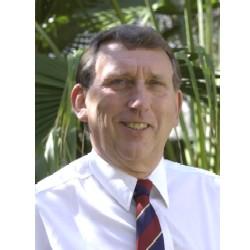A conversation with DVC Davies
Published on 03 October, 2002
One month into his appointment, Ron Davies, Deputy Vice Chancellor, Academic and Research, offers UniNews his views on CQU’s research achievements and upcoming plans.
Q. What do you think the role of the so-called regional university in research is?.
A. A regional university cannot try to be a Harvard or an Oxford or a University of Melbourne. It has to define its role relative to the region, to serve the region and be selective in that respect. Things that we do in Central Queensland are applicable nationally and internationally. Because we work on things relevant to our region, it does not mean that they are not global.
 Q. Should CQU concentrate on a small number of specific research issues or do we expand our research base?.
Q. Should CQU concentrate on a small number of specific research issues or do we expand our research base?.
A. We are conducting an environmental scan, looking at CQU relative to the internal environment and external environment. We look at where we are, where we want to be and what we want to be doing five years down the road. We have to define and refine our research and focus it. We have strength in process engineering and light metals, engineering rail transport, developments in plant resources; we have a Centre for Molecular Architecture and we are doing good things there. There is a diversity of approaches we could take.
Q. So, you look at a five-year plan rather than a 20-year plan?.
A. I think we look at a five-year plan - and I think it is very difficult to predict five years. I can say nanotechnology may be an area we would want to be exploring. It’s very expensive and far-reaching. You can have nanotechnology in chemistry, where you are doing things at a molecular level or you can have computers that are operating at a molecular level. No university could say we are going to do nanotechnology in the broader sense. Maybe there are facets of that we could be looking at developing that are relevant to this region and to our ability, to our capacity. We are a relatively small university; we have to build upon the strengths. The expansion has to occur in areas we want to be strong.
Q. What does the position of DVC of Academic and Research require you to do?.
A. It really involves me to insure quality and innovative programs and courses at the undergraduate and postgraduate level. I have to make sure we bring teaching and research together. CQU has emphasised teaching and program development, but we need to cultivate a culture of research at the University that is widely spread. If we can increase the culture of research throughout the campus and infuse that in our teaching, both our teaching and research will better serve the community.
Q. Is there anything else you hope to achieve in your position?.
A. To make this the best regional university with a national and international reputation. That we continuously improve quality undergraduate and postgraduate programs. That we develop quality students at both of those levels, and that we have the highest skilled staff around to deliver well-focused research.
Q. What’s your advice to other University officers in positions similar to yours?.
A. The position of Deputy Vice Chancellor can be isolated and can be isolating. I tend to be impatient and want things done yesterday. That is a strength and a weakness. I like action. I dislike territorial boundary jealousies like Research verses Teaching. The boundaries between departments, schools and faculties are so blurred in reality, that the petty jealousies of one faculty against another is unacceptable. Higher education today is multidisciplinary or transdisciplinary. Those turf battles hold universities – all universities – back. In many senses these kinds of groupings are for administrative purposes, they do not really make a great deal of sense in terms of research or teaching. Spread that message among colleagues and try to keep an open door policy.

